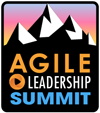Agile Leadership Summit—Leading Agile Culture Change
Agile Leadership Summit—Leading Agile Culture Change 
Thursday, June 6 • 6:00pm–8:00pm and Friday, June 7 • 8:30am–3:30pm
(Additional registration is required to attend) 
|
|
“We can’t do agile until the culture changes” is an often-heard lament from teams that want to adopt agile methods. The culture must move from plan- and schedule-driven—and this transition is not easy. At the Agile Leadership Summit, leaders who have achieved—or are in the middle of—this culture change will share their challenges, successes, and failures. The Agile Leadership Summit is your chance to join your peers and agile industry veterans—Robert Begg, VP Engineering, Bluecat Networks; Ruth Frank, Director UX Development , Pitney Bowes; Todd Little, Sr. Development Manager, Landmark Graphics; and Lisa Shoop, Director of Product Development and Agile Coaching, Sabre-Holdings—to explore the unique challenges facing software development leaders as they transform organizations to support agile methods. You’ll hear what’s working—and not working—for them and have the opportunity to share your experiences and successes. On Thursday evening, Lisa Shoop kicks off the Summit and shares her experience at Sabre-Holdings. You’ll have the opportunity to discuss your agile leadership issues that will become the basis for the Summit’s interactive sessions. Friday, in the Think Tank Session, you will work together in small groups to discuss your challenges and brainstorm solutions. Over lunch, speakers address your questions in a panel discussion. Join us for roundtable sessions (new this year), led by the speakers, to work on your specific challenges in small group collaboration. The conversation does not end when the Summit adjourns. Informal discussions will continue around the pool into the evening. |
|||||||||||||||||||||||||||||||||||||||||||||||||||||||||||||||||||||||||||||||||||||||||||||||||||||||||||||||||||||||||||||||||||||||||||||||||||||||||||||||||||||||||||||||||||||||||||||||||||||||
|
The Agile Leadership Summit is a perfect opportunity for you to:
|
||||||||||||||||||||||||||||||||||||||||||||||||||||||||||||||||||||||||||||||||||||||||||||||||||||||||||||||||||||||||||||||||||||||||||||||||||||||||||||||||||||||||||||||||||||||||||||||||||||||||
|
||||||||||||||||||||||||||||||||||||||||||||||||||||||||||||||||||||||||||||||||||||||||||||||||||||||||||||||||||||||||||||||||||||||||||||||||||||||||||||||||||||||||||||||||||||||||||||||||||||||||










